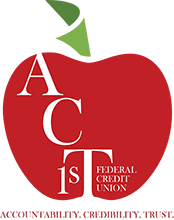
We're growing and we're taking you with us.
MOVING FORWARD TOGETHER.


In a perfect world, summer would be a time for children and parents to soak up the sun and enjoy a slower pace. As most of us know, work calendars don’t align with school calendars. Summer camp is a lifesaver for busy households, and costs add up quickly, leaving many families feeling financially burdened.
Here are ten strategies for cutting costs this season:
1. Camp Scholarships: Many summer camps offer scholarships or financial aid for families in need. Chat with camp staff to determine your eligibility and submit any required documentation.
2. State Subsidies: Depending on where you live, some states offer income-eligible subsidy programs for qualifying families. Start your search online for local organizations that can steer you to the proper application forms.
3. Day Camps: Day camps can be significantly cheaper than overnight camps since they don’t include accommodation expenses. Look for day camps in your area that offer similar activities and experiences to overnight camps.
4. Sibling + Group Discounts: Do you have more than one camper in your household this year? Or perhaps even other children in your parent group that could add to the headcount? Look for camps that offer sibling and/or group discounts.
5. Community Programs: Most community recreation centers offer year-round low-cost or free programs for children, including day camps, sports leagues, or even virtual experiences led by online educators. Beyond rec centers, check out local offerings at YMCA or Boys & Girls Club.
6. Flexible Payment Plans: Research camps that offer flexible payment plans, allowing you to spread out the cost over several months rather than paying a lump sum upfront.
7. Partial Weeks: Does your schedule allow for partial weeks at camp? Many camps offer the option to enroll two or three days per week (or even on a per-day basis) instead of a full week session. This can make camp attendance more manageable in the short-term, especially if you have summer travel plans.
8. Pack Your Own Supplies: Camps often charge extra for snacks, meals, and supplies. Save money by packing your child’s snacks and lunch each day, and ensure they have necessary supplies like sunscreen, bug spray, and water bottles.
9. Flexible Spending Accounts: Some employers may allow allocation of FSA funds to cover expenses if the camp is considered a qualified dependent care expense. Check your specific plan to confirm whether summer camp expenses are reimbursement eligible.
10. Volunteer Opportunities: Some camps offer discounts for families willing to lend their time (similar to co-op programs where parents can assist in classrooms). Helping with administrative tasks or coordinating activities has the secondary benefit of enriching your resume.
You’re not alone when it comes to crunching the numbers. Connect with your financial institution to see what resources we offer and consider free financial counseling with our trusted partner, GreenPath Financial Wellness, if you need support in building your summer budget.
Additional Resources:
Interactive Budgeting Worksheet
You support the community when you bank with ACT 1st FCU!
Did you know that by banking with ACT 1st FCU, you are actually contributing to the betterment of the community?
Here’s how:

1. You are an owner! When you join our credit union, you become a member-owner. We are a financial cooperative, and you have a say in how we operate.
2. We are Not-for-profit. Credit unions are structured to promote their members’ financial wellness rather than reward investors. Profits earned by the credit union are returned to you, our members, in the form of reduced fees, higher savings interest rates, and lower loan rates.


3. We are a Financial Cooperative. Credit unions create a cycle of mutual support for all members. The deposits of one member are used as part of a loan for another member. Our common goal is to benefit all credit union members.
4. We invest in you and our community. A credit union serves a community of local members. As such, the credit union better understands the needs of its community than a large bank might. We support many local events and community causes, which means you have a part also!

How are Credit Unions different from banks?
We offer the same services as traditional banks, except our profits are reinvested into members and the community.
When you choose to bank with ACT 1st Federal Credit Union, you choose a locally-focused credit union! You choose a team that’s here to listen to your financial goals and help you reach them.
Because, like you, we’re invested in the future of our community.

May is not only Mental Health Awareness Month, but also a time to reflect on how our financial well-being impacts our mental health, as the stress and anxiety caused by money can have a significant impact on our overall well-being.
What is the impact of financial difficulties on mental well-being?
Financial difficulties can have a significant impact on our mental well-being in various ways.
∙ Increased levels of stress and anxiety. The pressure of financial struggles can cause individuals to experience high levels of stress and anxiety, which in turn can have detrimental effects on their physical health. This can manifest in symptoms such as insomnia, headaches, and fluctuations in weight.
∙ Depression. The burden of financial hardship can lead to feelings of hopelessness and despair, resulting in a loss of interest in previously enjoyed activities and a decline in overall functioning in daily life.
∙ Strained relationships across various spheres. Money problems can create tension in various types of relationships, such as romantic partners, parents and children, siblings, friends, and more.
What is the influence of financial stability on mental well-being?
Let’s delve into the ways in which financial stability can affect an individual’s mental well-being:
∙ Peace of mind. Having a stable financial situation can instill a feeling of security and tranquility, alleviating personal stress and anxiety.
∙ Enhanced opportunities. Leading a financially responsible life opens up doors for individuals to pursue their interests and passions.
∙ Better relationships: Financial stability can also contribute to improved relationships by reducing the stress and tension that often accompany financial hardships.
Debt and Mental Health
Studies indicate that individuals who find themselves in a state of indebtedness are at a higher risk of encountering psychological issues such as anxiety, depression, and even contemplating suicide. If you are currently facing challenges in liberating yourself from debt, it may be worth considering the option of consolidating your debts through a personal or unsecured loan. By doing so, you will only have to make a single monthly payment, which could potentially have a lower interest rate, thereby alleviating some of the financial burden.
Enhancing Mental Well-being through Effective Financial Management
Here are ways you can improve your financial and mental health:
∙ Establish a budget and stick to it.
∙ Seek assistance from a financial counselor – ACT 1st FCU is partnered with the trusted national nonprofit GreenPath Financial Wellness giving our members access to free, one-on-one financial counseling delivered by caring, certified experts.
∙ Engage in stress-relieving activities such as meditation, yoga, or physical exercise.
∙ Set achievable financial goals and make progress towards accomplishing them.
∙ Focus on personal achievements unrelated to your financial worth.
By effectively managing your financial situation and reaching out for assistance when necessary, you have the ability to enhance your mental health and overall well-being. Does this blog entry resonate with you? If you are seeking a conversation about debt, financial stress, and ways to alleviate the burdens in your life, we recommend reaching out to our partners at GreenPath Financial Wellness.
Unlocking the Benefits of a Home Equity Line of Credit (HELOC)
Have you ever wondered, “What is a HELOC?” You’re not alone!
A Home Equity Line of Credit, or HELOC for short, can be a fantastic financial tool, and we’re here to break it down for you!
What is a HELOC?
A HELOC, which stands for Home Equity Line of Credit, is a flexible loan that allows you to tap into the equity in your home. But, what’s equity? It’s the difference between the current value of your home and the outstanding balance on your mortgage
How Does It Work?
Here’s the scoop: If your home is worth more than what you owe on your mortgage, you have built up equity. With a HELOC, you can leverage this equity to secure a line of credit. Unlike traditional loans that provide a lump sum at the start, a HELOC lets you access funds as you need them. It’s like having a financial safety net right at your fingertips.
Why Consider a HELOC?
HELOCs are incredibly versatile and can be used for various purposes:
◦ Home Improvements: Boost your property’s value with renovations.
◦ Debt Consolidation: Say goodbye to high-interest debts.
◦ Education: Invest in your future or your children’s education.
◦ Emergency Funds: Have a financial cushion when life throws surprises.
◦ Flexible Access: Withdraw funds on your terms.
Total Control Over What You Owe
With a HELOC, you’re in the driver’s seat. Once approved, you choose when and how much to withdraw. This level of control means you determine your repayment schedule. Even better, you only pay interest on the amount you’ve borrowed.
Is a HELOC Right for You?
Still not sure if a HELOC is the right choice for your financial goals? No worries! Our team at ACT 1st FCU is here to guide you. Let’s chat about your specific needs and see if a HELOC is the perfect fit for you!
Ready to explore your options?
A HELOC lets you borrow when you need it against the equity in your home.
HELOC: Home Equity Line of Credit. A HELOC is a loan that lets you use a portion of the equity in your home and borrow against it when you need it.
Equity: Equity is the value of your home minus what you owe to your lender. Is your home worth more than the amount owed on the mortgage? If so, you have equity in your home and may be eligible for a line of credit secured by that equity.
Unlike other loan options that payout a lump sum upon closing, a HELOC lets you draw money as needed over time!
HELOCs are often used for home improvement projects, especially when they increase the overall value of your home. But they can also be used for other needs, like consolidating high-interest debt, education costs, having flexible access to funds and more. Once approved for a line of credit, you control when and how much you withdraw, which means you control how much you have to repay. You also only pay interest on the amount you withdraw.
Is a HELOC the right loan for you?
Talk to our team at ACT 1st Federal Credit Union and help you see if this is a good fit.
We are thrilled to announce the launch of our brand new Loan Payment Skip Program, exclusively for our valued members!
This exciting program allows you to skip a payment on your loan, providing you with some much-needed financial flexibility. Whether you’re facing unexpected expenses or simply want to free up some extra cash for a special occasion, our skip payment program is here to help. With just a few simple steps, you can take advantage of this incredible opportunity and enjoy some breathing room in your budget.
Not only does our Loan Payment Skip Program offer convenience and flexibility, but it also provides peace of mind. We understand that life can throw unexpected curveballs, and sometimes finances can become tight. That’s why we’ve designed this program with our members’ best interests in mind. By skipping a payment, you can alleviate some financial stress and focus on what matters most – whether that’s taking care of your family, paying off some debt, or simply enjoying life to the fullest.
So, why wait? Take advantage of our Loan Payment Skip Program today and experience the freedom it brings! Our dedicated team is here to support you every step of the way, ensuring that you have all the information and guidance you need! Your financial well-being is our top priority, and we’re excited to provide you with this valuable resource.
Please look over our Loan Payment Skip Program webpage to read how to quality, terms & restrictions
5 Costly Car Loan Mistakes for 2024
Car buying can be a challenging experience and often comes with stress! We’ve compiled a list of some of the most common car-buying mistakes that can harm your financial health.
The next time you are car shopping, be prepared, and know what to avoid.
1. Don’t shop based on monthly payments.
Always think of the total purchase price versus what you can afford each month. When shopping at the dealership, don’t give the salesperson your monthly payment range. Instead, negotiate on the final purchase price of the vehicle. When you disclose how much you can “afford” each month, this leaves room for add ons and extra fees from the dealership, and you may be tempted to purchase a vehicle that exceeds your budget.
2. Avoid getting upside down.
If you own more on your current car than what it’s worth – resist the temptation to roll the negative balance into a new car loan. It’s better to live within your means and pay extra on the current car until you can build equity in your vehicle or break even.
3. Don’t be afraid to ask questions.
Question every fee, detail, and add-on you do not understand. When you walk away from the dealership, you will own the car and have full responsibility for the loan you take on.
4. Know your credit score before you go.
Don’t let the dealership define your creditworthiness. Your credit score determines the interest rate and loan terms offered to you. Let the credit union provide your credit score and loan prequalification before you shop. Just like you do not enter the grocery store without a form of payment, don’t shop for a car without your loan prearranged with the credit union. It will save you money and time!
5. Void high markups on add ons.
Credit Life & Disability, Gap Insurance, and Car Warranties are products sold thru the car dealership that often have a high markup. The credit union offers these at a much lower price as a benefit of your membership.
Ready to car shop? Let us help!
You support the community when you bank with ACT 1st FCU!
How so?
1. You are an owner! When you join our credit union, you become a member-owner. We are a financial cooperative, and you have a say in how we operate.
2. We are Not-for-profit. Credit unions are structured to promote their members’ financial wellness rather than reward investors. Profits earned by the credit union are returned to you, our members, in the form of reduced fees, higher savings interest rates, and lower loan rates.
3. We are a Financial Cooperative. Credit unions create a cycle of mutual support for all members. The deposits of one member are used as part of a loan for another member. Our common goal is to benefit all credit union members.
4. We invest in you and our community. A credit union serves a community of local members. As such, the credit union better understands the needs of its community than a large bank might. We support many local events and community causes, which means you have a part also!
How are Credit Unions different from banks? We offer the same services as traditional banks, except our profits are reinvested into members and the community.
When you choose to bank with ACT 1st FCU, you choose a locally-focused credit union. You choose a team that’s here to listen to your financial goals and help you reach them. Because, like you, we’re invested in the future of our community.
Navigating the auto buying process can be overwhelming, and sometimes, we find ourselves locked into less-than-favorable loan terms. But the good news is that you don’t have to stay stuck in a loan that’s not working for you. If your financial situation has evolved, or if you’re simply looking to make smarter financial choices, auto loan refinancing could be your solution.
Here are three reasons why refinancing your auto loan might be a good idea:
1. Improve Your Loan Terms:
Perhaps you originally secured your auto loan through the dealership, which often comes with marked-up interest rates. Or maybe you’re simply unhappy with your current lender. Transitioning your auto loan to our credit union can lead to more advantageous terms and save you money in the long run.
2. Adjust Your Monthly Payment:
Life is full of changes, and sometimes you need to adapt your monthly payment to your current financial circumstances. You might be looking to lower your monthly expenses, or you could be in a position to pay off your loan more quickly. Whatever your goals, exploring a loan refinance can help you customize your payment plan to better suit your needs.
3. Leverage Improved Credit Scores:
Your credit score plays a significant role in determining the interest rate and terms of your loan. If your credit score has shown improvement since you initially secured your loan, refinancing can offer you a better deal. Take advantage of your improved creditworthiness to secure more favorable loan conditions.
Ready to explore the benefits of auto loan refinancing?
It’s easy to get started!
As a non-profit organization, we prioritize your financial well-being. We keep fees minimal and are committed to guiding you toward the path that makes the most sense for your financial situation. Our dedicated team is here to help you review your loan options and make informed decisions that save you money.
ACT 1st FCU is Federally Insured by NCUA and an Equal Housing Lender. We do business in accordance with the Fair Housing and Equal Credit Opportunity Act. NMLS #654273 APR = Annual Percentage Rate. Rate based on creditworthiness and term of loan. *APY = Annual Percentage Yield. Rates are subject to change at any time and are not guaranteed. We may provide links to third party websites. The Credit Union has no control over any other website and is not responsible for the content, accessibility or security of any site other than this one. Users assume all responsibility when they go to other sites via the links on this page.


Federally insured by NCUA


